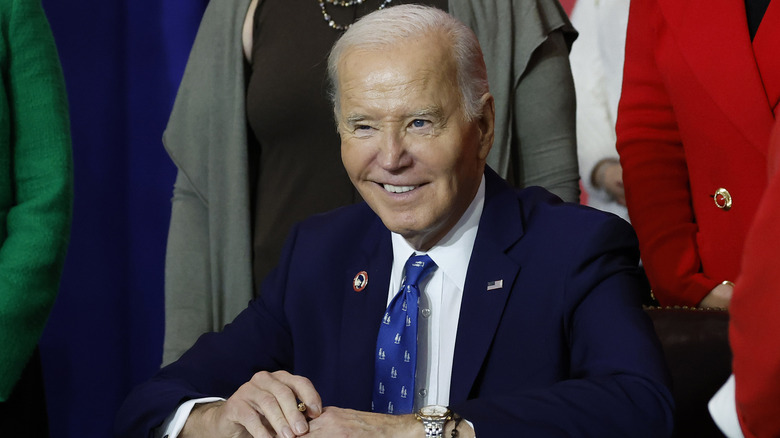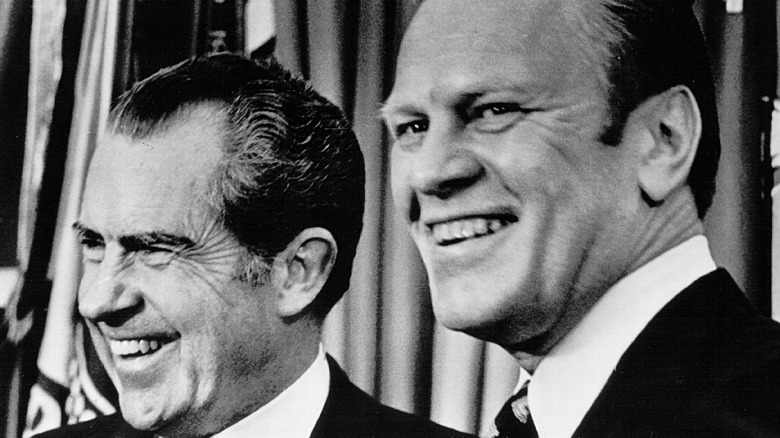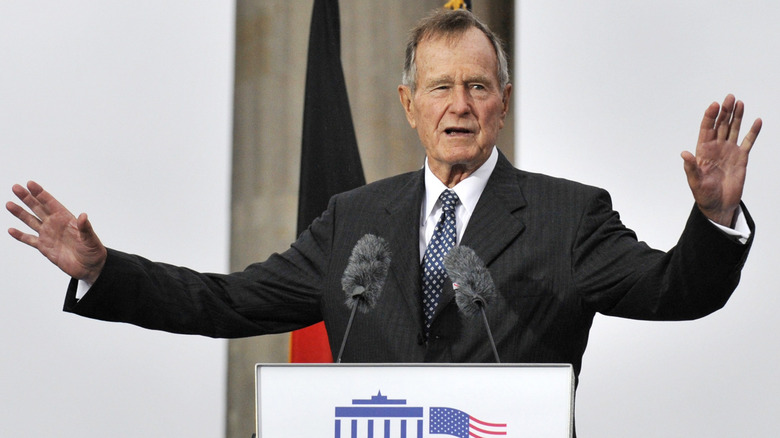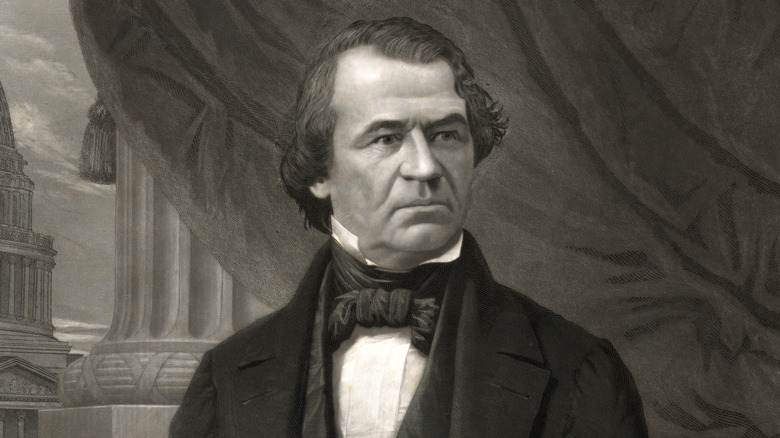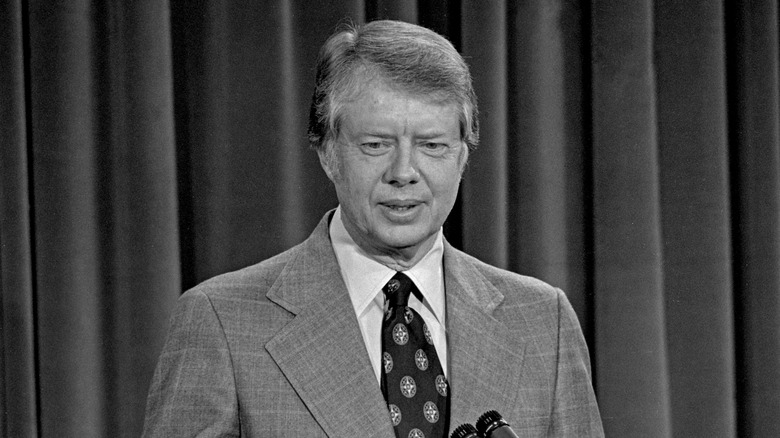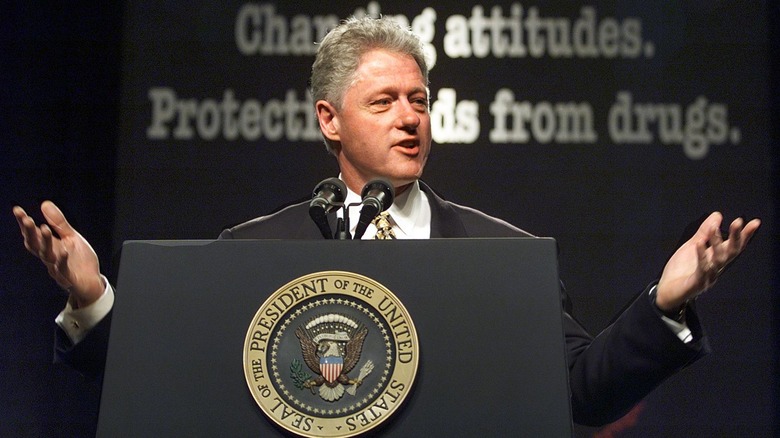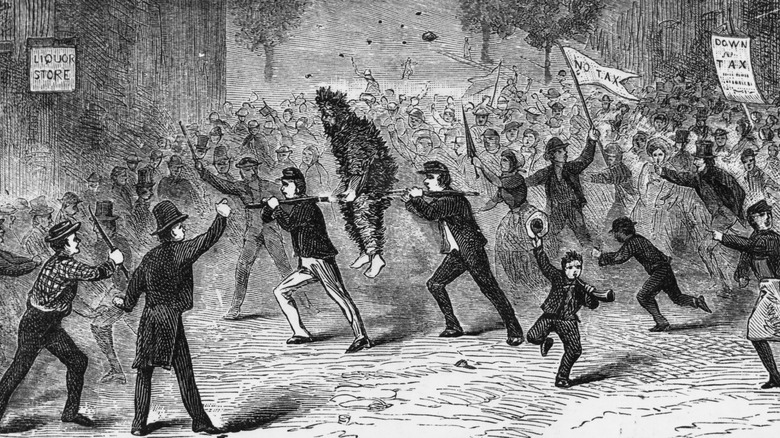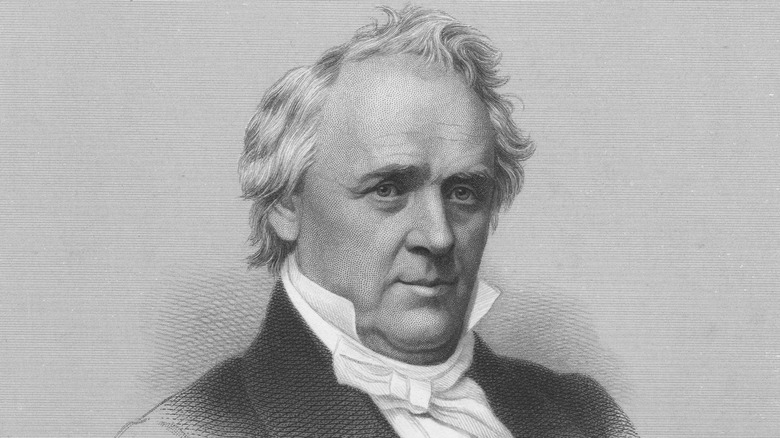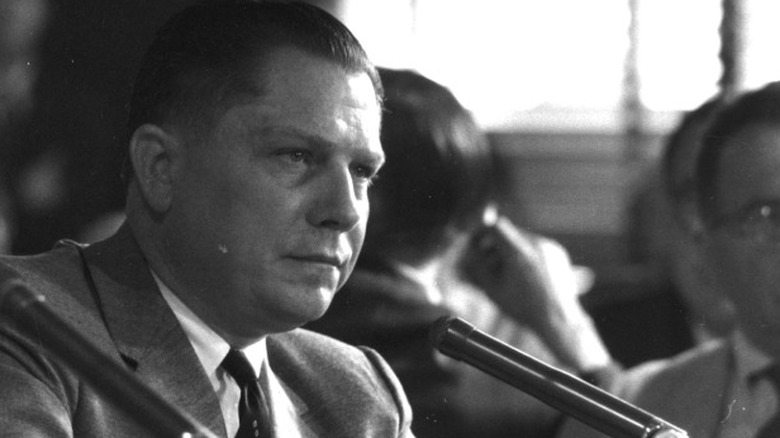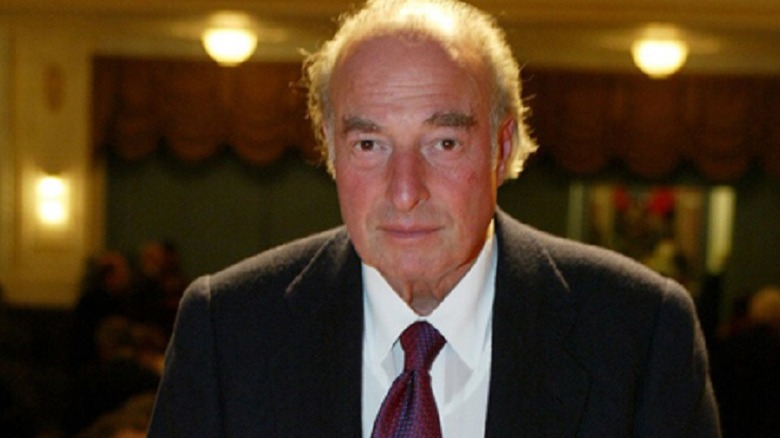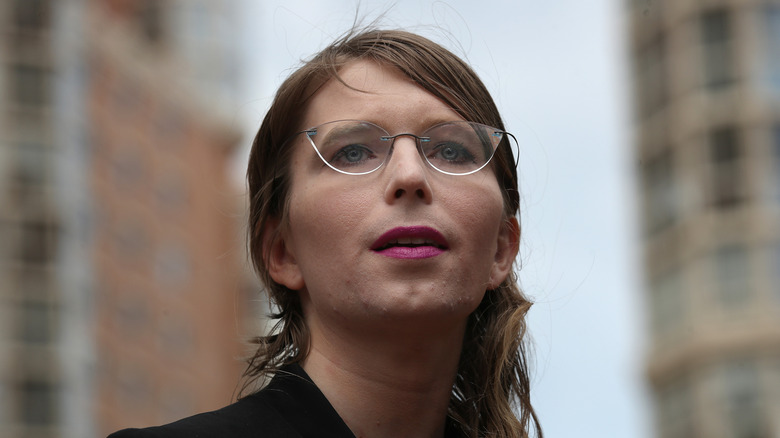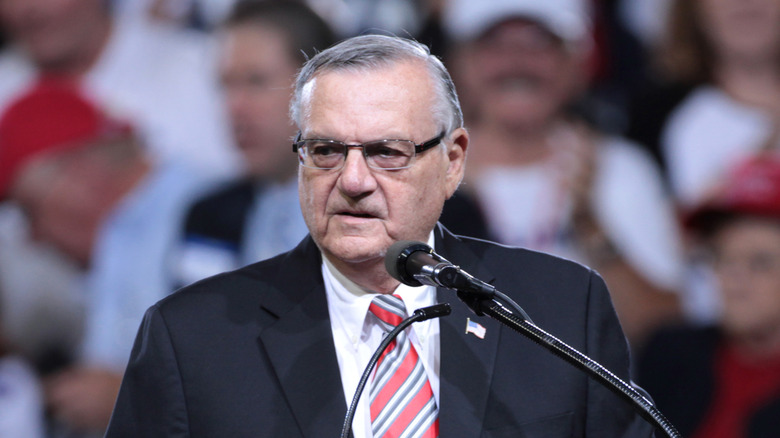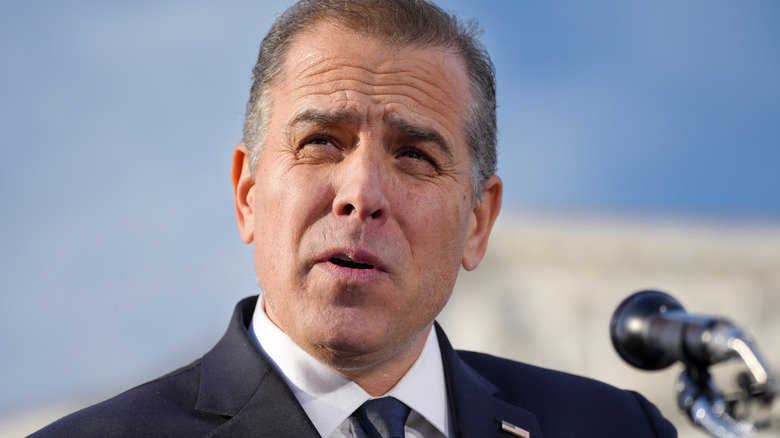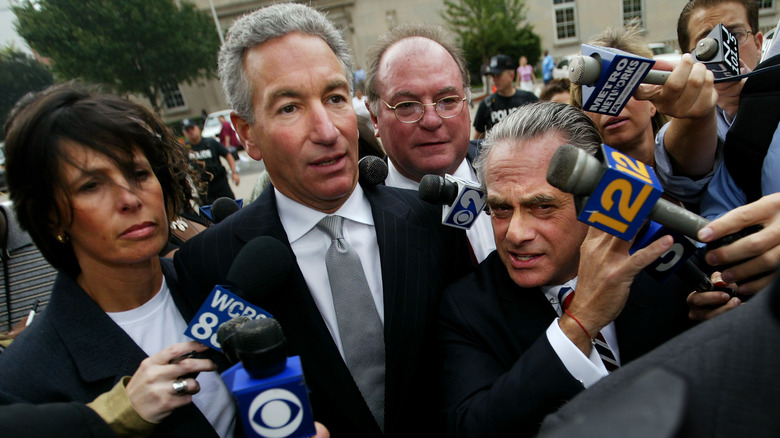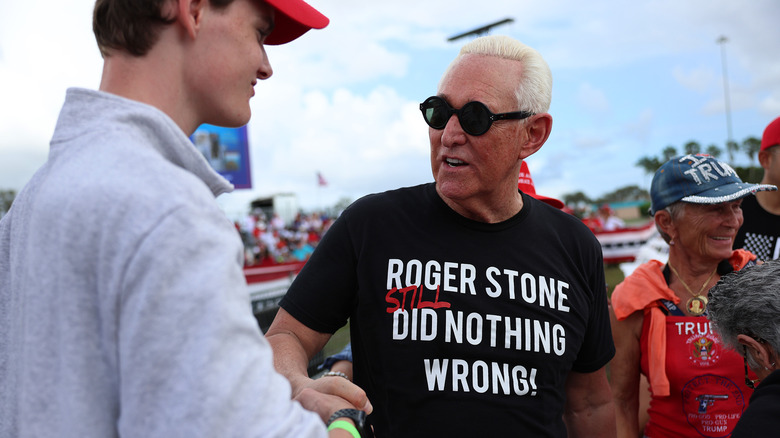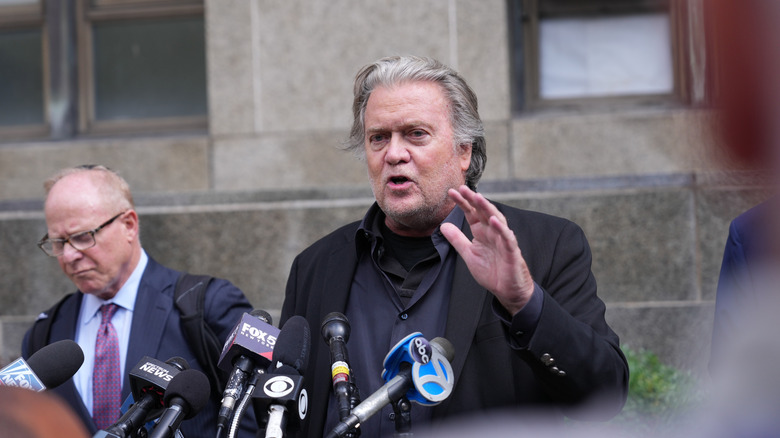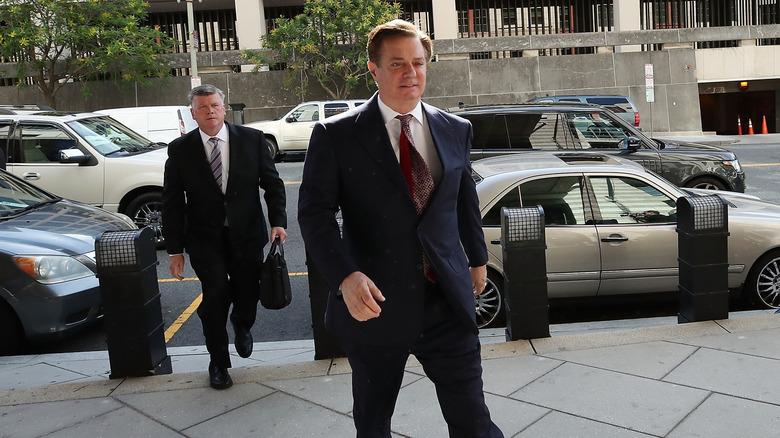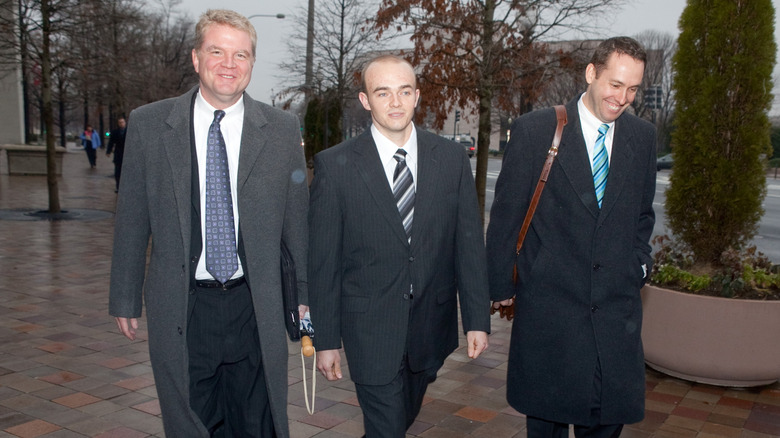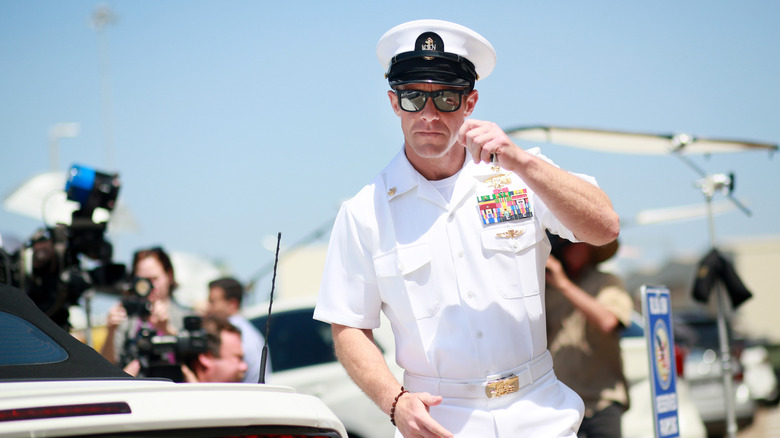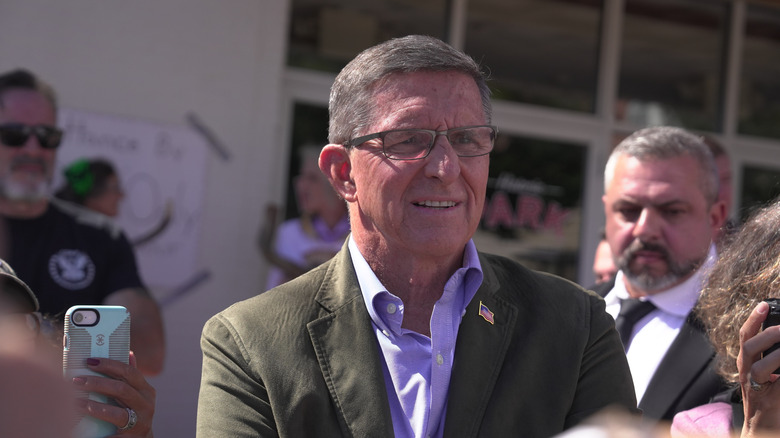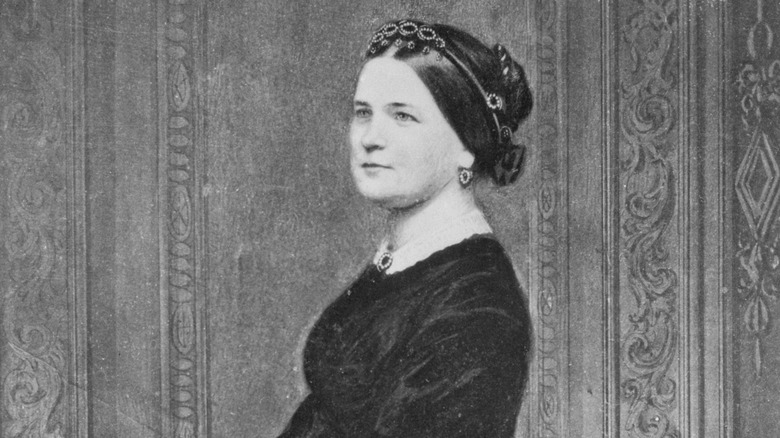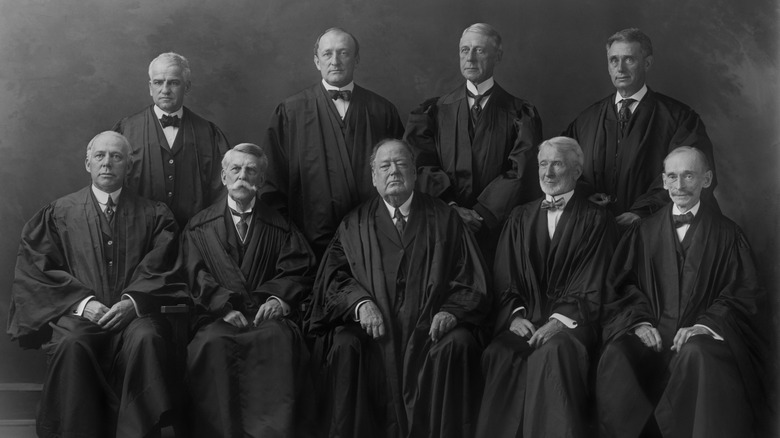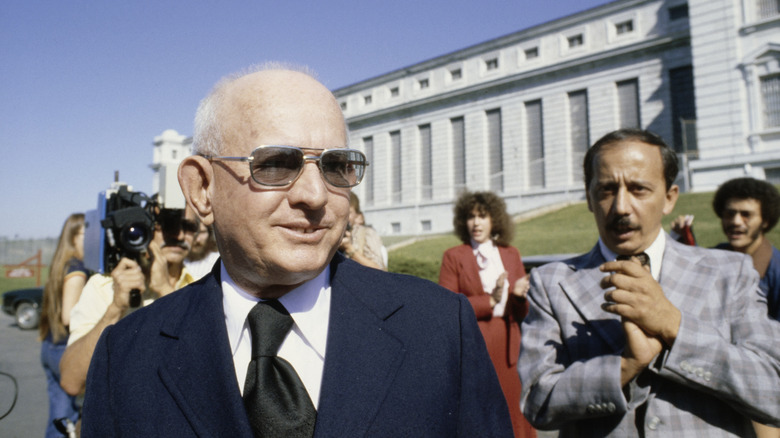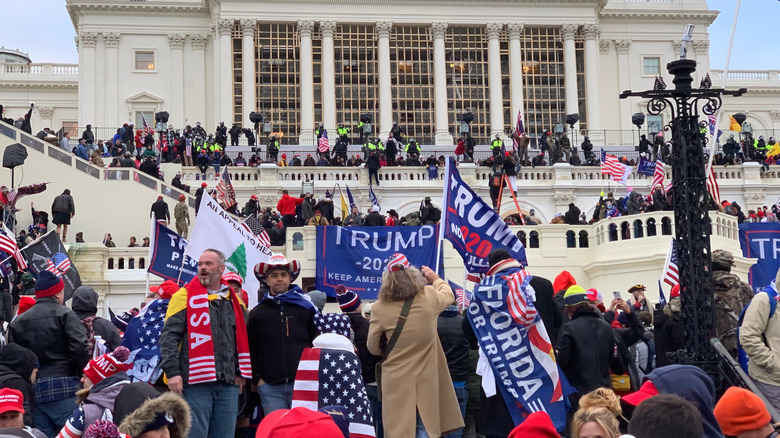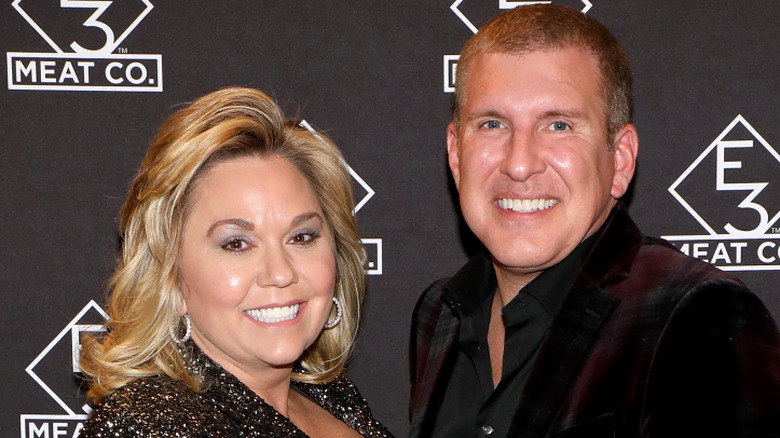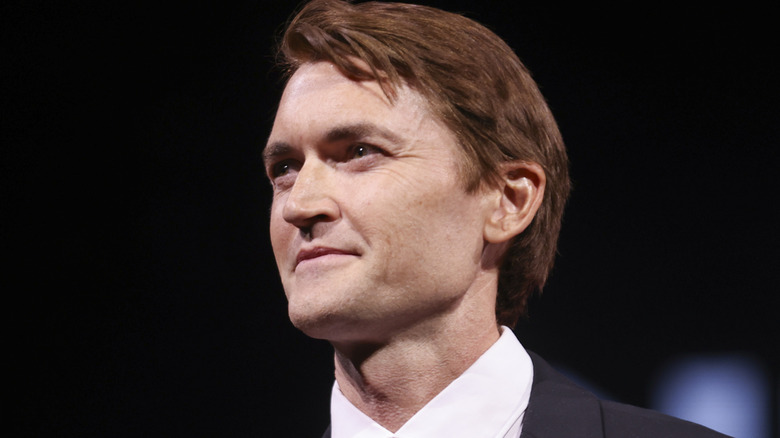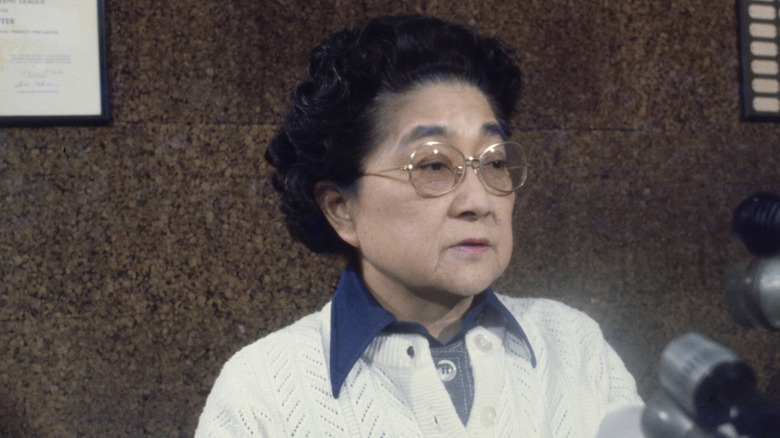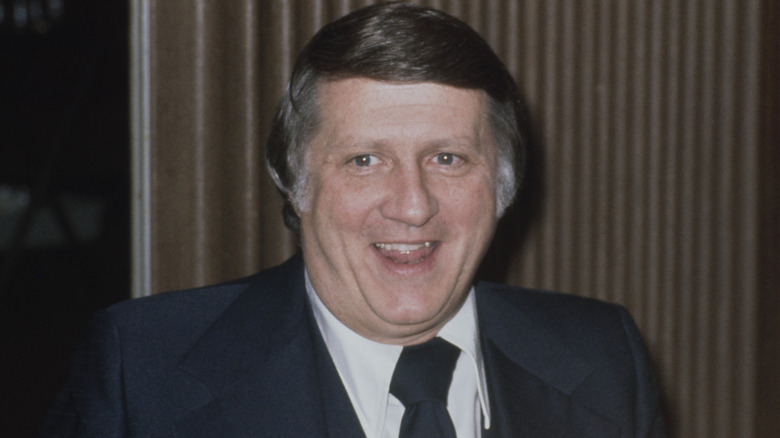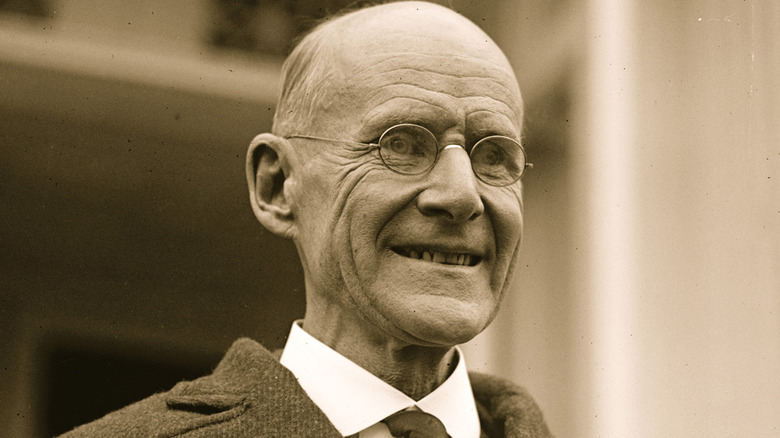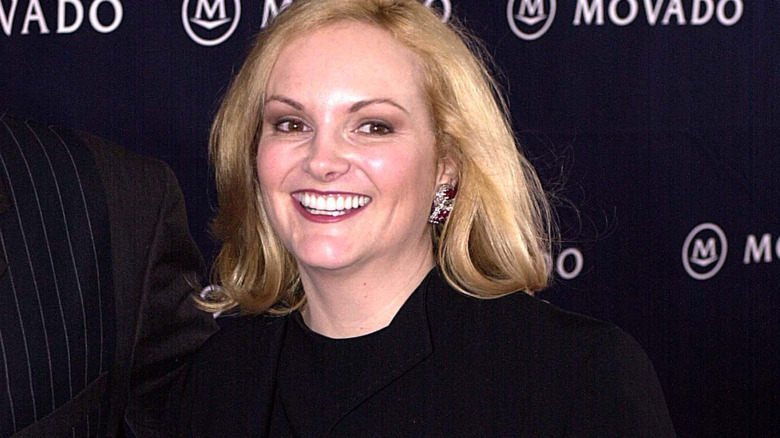The Most Controversial Presidential Pardons
The president of the United States wields a tremendous amount of power, from possessing the nuclear codes to being commander in chief of the largest military force in human history. But one particular presidential perk often stands out above others, especially at the end of the holder's time in office, and not always for good reasons: the presidential pardon, aka the world's greatest "get out of jail free" card.
With the exceptions of state convictions and impeachments, the president has the ability to issue a pardon to anyone for anything. And if a pardon might be considered going a little too far, they also have the option to commute a sentence and let the conviction remain. Presidents have historically handed out pardons often and usually with good, solid reasons and recommendations. But every now and then, they pardon someone for more controversial reasons, such as undeserving close friends and family, unrepentant criminals, or even another president. Here are some of the craziest presidential pardons in U.S. history.
President Nixon
Watergate was one of the biggest scandals ever to rock the presidency, and certainly the most well known of all the questionable things about Richard Nixon's presidency. Even after Nixon resigned, the country was still paying attention to the cover-up. President Gerald Ford's theory was that the U.S. needed to move on from Watergate in order to heal. The only way that could happen, he figured, was if he put an end to it all by pardoning Nixon for any and all crimes he may have committed (listing them may have taken too long). So, just one month into his presidency, Ford gave a 10-minute television address to the nation and pardoned his predecessor. But controversy soon followed, including some people accusing Ford of cutting a deal with Nixon: in return for Nixon resigning and giving Ford the top job, Nixon would get a blanket pardon. Consequently, Ford's approval numbers plummeted, and there's a good chance the pardon contributed to his losing the election in 1976. (One reason many controversial pardons are delayed until after key elections.)
After the tough work of pardoning possibly the worst crime ever committed by a president, Ford obviously needed to let the wind blow off the stench of what he had done, so he went to play a round of golf. But there was no rest for the poor White House switchboard operators, who had to deal with the flood of angry calls that flooded in after the announcement.
Officials involved in the Iran-Contra affair
It might seem like you need a PhD to understand the Iran-Contra affair, but it can be broken down into manageable chunks. When Ronald Reagan was president, Iran and Iraq were at war. Iran wanted to buy weapons from the U.S., even though there was an embargo against America selling arms to them. At the same time, Iranian terrorists were holding some American hostages in Lebanon. Reagan agreed to sell Iran the weapons if it released some of the hostages. The deal went ahead, but it was discovered that less than half of the $30 million Iran paid was accounted for. The rest was funneled to a right-wing rebel group in Nicaragua called the Contras.
When all this hit the press, it was a huge scandal. An investigation dragged on for six years and resulted in the indictment of six high-ranking Reagan officials. It would have kept going, possibly reaching up to the ex-president himself, when the new president, George H.W. Bush, put a stop to it by pardoning all six men. The move was immediately controversial, with the independent counsel prosecuting the case calling it a cover-up and accusing the president of misconduct. Despite illegal arms smuggling being one of the worst crimes that U.S. presidents have been accused of, maybe Bush was just sick of all the explanatory flowcharts.
Confederate rebels
The end of the Civil War and the start of the Reconstruction era brought to the fore many messed up issues. How would formerly enslaved people manage? What approach should Reconstruction take? How severely should the Confederate rebels be treated? For that last question, it turned out the logistics of punishing every one of the Confederates were too complicated, but people still wanted to see it done. After all, they had just rebelled against the United States and tried to tear the Union in half; surely they deserved a serious penalty?
President Andrew Johnson thought differently. He believed the best way to heal the country was to let bygones be bygones. So on Christmas Day 1868, he gave a blanket pardon to all of your average Southerners. Anyone who had been a Confederate official or owned a large estate had to ask specifically for their own pardon, but Johnson gave these out like candy, approving 7,000 of them in less than a year. He even returned all their property.
This tactic was incredibly controversial. One political cartoonist pointed out that America was giving the rebels everything, allowing them to be full citizens again, while many Black Civil War veterans were still treated atrociously.
Vietnam draft dodgers
In the 1960s and '70s, America was involved in a spot of bother in Vietnam. In an attempt to stop the spread of communism, thousands of people were sent to fight and die in Southeast Asia. But back in the U.S., some men weren't having it. They didn't want to be drafted, so they fled. It so happened that some 100,000 American guys suddenly decided that they really needed to visit Canada, really fast, and just as the draft was issued. Thousands more hid out in the U.S., some changing their identities to avoid getting a free trip halfway around the world and fight in the Vietnam War, which was likely even worse than you thought.
Even though the fighting ended in 1973, the government kept charging people for dodging the draft. But Carter ran on a promise to pardon all of them, and when he won he kept his word, and on his first full day in office, too. The pardon affected hundreds of thousands of people but was very controversial, especially with veterans' groups.
Roger Clinton
Every family has a black sheep, even if one member of that family managed to elevate himself to the position of the most powerful man in the world. Jimmy Carter had his brother Billy, who cashed in on his infamy by making the eponymous Billy Beer. And Bill Clinton had Roger Clinton, his ne'er-do-well half-brother.
Roger was an embarrassment for many reasons, but it was mostly because in the mid-1980s he'd been stupid enough to try and sell cocaine to an undercover cop. Not only that, the whole thing was caught on videotape. He was arrested, pleaded guilty, and served a year in prison. On the last day of his presidency, Bill pardoned his younger brother. Maybe he was feeling a little guilty, since the sting that originally caught Roger was authorized by the then-governor of Arkansas, none other than Bill Clinton himself. Whatever the reason, the obvious nepotism of the pardon was very controversial.
You'd think that after having your slate wiped clean by the president himself, you'd stay on the right side of the law. But not so for Roger: he was arrested in 2016 for driving under the influence.
Those involved in the Whiskey Rebellion
The U.S. Constitution gives the president the power to pardon almost anyone, and the ink was barely dry before one used it. President George Washington whipped out his pardon stick in 1795, even though it was very controversial, and it all started with everyone's favorite thing: taxes.
In one of the many times alcohol changed the course of American history, in 1791 Alexander Hamilton had backed a tax on whiskey, hoping that it would help pay back all the money the country had spent kicking British butt in the Revolutionary War. The problem was that, like many taxes, it hit poor farmers the hardest. They weren't happy about this and decided to let the government know in the craziest way possible. Soon after the tax was passed, a tax collector came to try and collect the money in Pennsylvania, but 16 guys dressed in women's clothing jumped him, stripped him naked, cut off his hair, and tarred and feathered him.
Riots and protests continued for years until the government finally fought back, calling up militias to suppress the farmers. In the end, the farmers gave up, although 150 were arrested, 10 were tried, and two were sentenced to hang. Washington issued two stays of execution before finally pardoning them altogether. It was a controversial move, but he proved that sometimes the president can just do whatever they feel like.
The Mormons
Not many religions can say they once went to war with the entire United States, and you really wouldn't expect it from a group as nice as the Mormons. However, there was a period in the 1800s when things went a bit crazy in Utah. Creatively titled the Utah War, it stemmed from the fact that the Mormons had basically taken over that territory, and in doing so they threw out most federal officials and set fire to military wagon trains. President Buchanan wasn't happy about this and sent almost one-third of the entire army to fix things.
The whole situation was a political disaster, and soon Buchanan was looking for a way out. So in 1858, he drew up a blanket pardon of all 50,000 people in Utah Territory –- with the caveat that they settle down and start obeying federal law. Governor Brigham Young accepted, but both the pardon and the acceptance were not without controversy. Many were annoyed at the free pardon for what they saw as obvious treason, while those in Utah were angry they'd been pardoned at all when they didn't think they'd done anything wrong. It was a "damned if you do, damned if you don't" situation, and one of many reasons that Buchanan has gone down as such a bad president.
Jimmy Hoffa
Throw the names Richard Nixon and Jimmy Hoffa together and you have controversy, no matter what the story is. In 1971, Hoffa was the former head of the Teamsters Union and was serving 13 years in prison for fraud and jury tampering. But he still held a lot of power over that important voting bloc, and Nixon was almost up for reelection. Nixon being Nixon, he didn't care much about the ethics of what he needed to do in order to get more votes.
At around Christmas 1971, Nixon pardoned Hoffa. But how do we know this was scandalous, instead of just being a run-of-the-mill pardon? Because Nixon, again being Nixon, taped it all. And the tapes leave no doubt that this was a tit-for-tat pardon; if he got Hoffa out of jail, Nixon would get all those sweet Teamster votes in the 1972 election. What is less clear but heavily implied is that the Teamsters were also funneling money to the campaign illegally.
Because everything Nixon-related has to tie into Watergate eventually, the former attorney general John Mitchell would later lie to prosecutors that there had been any political reasons for Hoffa's pardon.
Marc Rich
If you thought the Monica Lewinsky affair was a scandal, it almost pales in comparison to when President Bill Clinton pardoned the financier Marc Rich, who was indicted in 1983 for evading over $48 million in taxes. Not content with that, he was also charged with 51 counts of tax fraud, and was also accused of making illegal oil deals with Iran while it was holding U.S. citizens hostage. Did he serve time for any of this? Nope, because he fled to Switzerland, where he lived as a fugitive for 17 years until the pardon came, courtesy of President Clinton.
Adding to the controversy was the fact that Rich's ex-wife Denise had given over $1 million to Democrats, including the Clinton campaign and presidential library fund. To many, it looked like Rich, through his ex-wife, had paid for his pardon.
The pardon was so last-minute, coming just hours before Clinton left office, that some people said he might not even have had enough time to fill out the correct paperwork. Both Democrats and Republicans were shocked by this turn of events, and investigations were immediately launched in both the House and the Senate. When Denise was called to testify before them, she took the Fifth.
Chelsea Manning
In 2017, President Barack Obama commuted Private Chelsea Manning's 35-year jail sentence to seven years. Manning wasn't issued a full pardon — the crime is still on her record, she just got out of jail before she was originally supposed to — but the reaction was all over the place.
Manning was accused of sending 750,000 classified government documents and videos to Wikileaks. The website published them all in 2010, including a graphic video of a U.S. helicopter attacking civilians. She was convicted on 20 of 22 counts and sentenced to 35 years. Despite being a transgender woman, she was forced to serve her time in an all-male Army prison, making her punishment that much worse.
The main person opposed to the commutation was the secretary of defense himself, who Obama overruled. One former intelligence official was shocked, calling the move "deeply hypocritical" and said that the whole intelligence community was "deflated." Donald Trump had previously said he thought the death penalty would be appropriate for this kind of crime and numerous other Republicans were angry, calling it treachery and a slap in the face to other soldiers.
Joe Arpaio
For over two decades, Joe Arpaio was a particularly hard-line sheriff of Arizona's Maricopa County. In 2016, Arpaio ran afoul of a federal court order prohibiting his agency from detaining undocumented immigrants without any criminal charges, which many considered to be racial profiling. Criminal contempt charges were brought against Arpaio by the outgoing Obama administration, but some six months after Donald Trump took office in 2017, the controversial sheriff from Arizona was given an equally controversial presidential pardon by President Trump.
It's rare for presidents to issue pardons so early in their terms, especially ones that might come back and bite them in the behind come election time. Another odd thing about this pardon was that it was given before Arpaio was even sentenced.
The reactions to the pardon came so fast that it seemed like there was a scramble to see who could be against it first. As reported by CNN, Sen. John McCain said, "No one is above the law." The ACLU called it "a presidential endorsement of racism." Former acting attorney general Sally Yates said the president had shown "his own contempt for our Constitution, our courts, and our founding principles of equality and justice."
Hunter Biden
The tangled life of Hunter Biden was an obsession for Republicans during the Joe Biden administration. There were endless hearings and a confused, controversial prosecution for a crime that few ever see jail time for. And at the time of the pardon, President-elect Donald Trump's nominee for FBI director, Kash Patel, spent years telling anyone who would listen how he would go after Hunter if given the chance.
In order to protect his son from further prosecution, and despite previously swearing he wouldn't do it, the president pardoned him — but not just for any specific charges. Instead, Hunter's pardon was incredibly broad and almost historical in nature. "I have never seen language like this in a pardon document that purports to pardon offenses that have not apparently even been charged, with the exception of the Nixon pardon," Margaret Love, a former U.S. pardon attorney, told Politico.
Despite the clear threat of prosecution by the next administration, this extremely broad pardoning of a family member of the president was immediately considered by many to be one of the craziest presidential pardons. As well as Nixon's pardon, many saw parallels to Bill Clinton's unpopular pardon of his half-brother Roger, and members on both sides of the aisle voiced their concerns. Rep. Glenn Ivey (D-Md.), a member of the House Judiciary Committee, gave an interview to CNN, where he said, "This sort of gives [Trump] ground to argue that, you know, both sides are doing the same thing. This is going to be used against us when we are fighting the misuses that are coming from the Trump administration" (via the Los Angeles Times).
Charles Kushner
Jared Kushner married Ivanka Trump in 2009, but half a decade before that, his father, Charles Kushner, was sentenced to two years in prison. Future governor Chris Christie was the one prosecuting Charles at the time, and the politician called it "one of the most loathsome, disgusting crimes that I prosecuted when I was U.S. attorney. And I was U.S. attorney in New Jersey" (via the AP).
So what exactly did Charles do? The details are pretty inappropriate for a general audience, but fortunately, Christie was able to boil the whole sordid business down to the broad strokes, explaining to PBS (via AP), "...[the] guy hires a prostitute to seduce his brother-in-law, and videotapes it, and then sends the videotape to his sister to attempt to intimidate her from testifying before a grand jury..." Yeah. Thanksgiving must be interesting for the Kushner family. The case did not go to trial, since Charles pleaded guilty to 18 counts that included tax evasion and witness tampering.
Because of how gross his crime was, and their personal connections, President Trump's pardon of his son-in-law's father in 2020 was not looked on favorably by most people. And despite saying in 2018 that he wouldn't even want to be pardoned, Charles accepted it. Adding to the controversy, in 2023, he gave $1 million to a Super PAC that was helping Trump get reelected. Then, in 2024, after successfully winning a second term as president, Trump nominated Charles to be ambassador to France.
Roger Stone
Roger Stone got his start in politics by helping Richard Nixon with his dirty tricks campaigns. Stone's reputation for being a slippery character hasn't improved in the decades since. He is also a long-time friend of Donald Trump, and during Trump's first presidential campaign in 2016, Stone served as an advisor. But in 2019, Stone was brought to trial after an investigation connected to Special Council Robert Muller. Stone was found guilty of several counts including witness tampering and lying under oath; he was sentenced to 40 months in prison.
After his associate was convicted, Trump made clear he thought the whole prosecution was bogus, saying (among other things), "Roger Stone and everybody has to be treated fairly. This has not been a fair process" (via The New York Times). Shortly before Stone was required to report to prison in 2020, Trump commuted his sentence. Later that year, the president went further and issued a full pardon.
Both actions were controversial with Democrats and Republicans. After the first act of clemency for Stone, Rep. Adam Schiff (D-Ca.) said, "With this commutation, Trump makes clear that there are two systems of justice in America: one for his criminal friends, and one for everyone else." Meanwhile, Mitt Romney (R-Ut.) called it "Unprecedented, historic corruption: an American president commutes the sentence of a person convicted by a jury of lying to shield that very president" (via Twitter).
Steve Bannon
Usually, a president only grants a pardon to someone once they have been convicted of a crime. However, there have been exceptions, including Donald Trump's former chief strategist Steve Bannon. The pair had an on-off working relationship together, and Bannon eventually started doing his own thing, while still heavily involved in the world of MAGA. One of his projects was "We Build the Wall." This was an attempt by citizens to build a small part of Trump's envisioned border wall in Texas.
The problem was, according to the charges brought against Bannon and his partners, that they lied about the project's financial outlays. "The defendants defrauded hundreds of thousands of donors, capitalizing on their interest in funding a border wall to raise millions of dollars, under the false pretense that all of that money would be spent on construction," U.S. Attorney Audrey Strauss explained (via The New York Times). In reality, once the money started flowing in, they took a large chunk for themselves.
Bannon's pardon was controversial even within the White House itself. The list of people being pardoned at that time was delayed as different factions in the administration fought over whether he should be included. After it initially looked like he would lose out on clemency, Trump changed his mind at the last minute. Despite getting a federal pardon, Bannon was eventually charged with the same crimes in New York State court — a place where federal pardons have no weight.
Paul Manafort
Paul Manafort acted as chairman for Donald Trump's 2016 campaign for a few months, but it was his work for pro-Russian factions in Ukraine during that time period that would get him on the radar of Special Counsel Robert Mueller. In 2017, Manafort found himself being convicted of eight felonies, and he eventually pleaded guilty to even more counts. Despite this, Trump issued a pardon for Manafort in 2020, when he still had time left on his sentence (although it had been changed to home confinement because of the COVID-19 pandemic).
Trump did not try to appear unbiased with this pardon, either. Manafort's deputy, Rick Gates, was involved in the same criminal activity — the only difference being that he chose to cooperate with the government. For helping the prosecution, he only got 45 days in jail compared to Manafort's more than seven years. What Gates did not get, also probably because he chose to help the prosecution, was the offer of a pardon from the president.
Members of Congress in both houses and parties were disgusted by the pardon for Manafort. Rep. Adam Schiff (D-Ca.) tweeted, "During the Mueller investigation, Trump's lawyer floated a pardon to Manafort. Manafort withdrew his cooperation with prosecutors, lied, was convicted, and then Trump praised him for not 'ratting.' Trump's pardon now completes the corrupt scheme. Lawless until the bitter end." Sen. Ben Sasse (R-Neb.) summed up his feelings on the pardon more succinctly, releasing a one-sentence statement: "This is rotten to the core."
Four Blackwater guards
Just before Christmas in 2020, Donald Trump pardoned four guards who had worked for the notorious Blackwater security firm in Iraq. In 2007, Paul Slough, Evan Liberty, Dustin Heard, and Nicholas Slatten opened fire on a crowd of unarmed Iraqi civilians. Fourteen people were killed. The four men were tried and convicted, with Slatten (pictured center) sentenced to life in prison and the other three getting 30 years each. It was a difficult case to make. U.S. Attorney Ronald Machen told The New York Times, "We had to send teams of F.B.I. agents and prosecutors over there to build the case from the ground up — they had to risk their lives to collect the evidence. We had to persuade Iraqis who lost loved ones to come over to testify. And to think it all gets thrown away."
Not only did their actions lead to deaths at the time, but government workers believed that the negative effect the slaughter had on the U.S. military's relations with Iraqis would have led to many other deaths.
Considering the scale of their crimes, there was a huge outcry over the men's pardons. A statement from the U.N. said, "Pardoning the Blackwater contractors is an affront to justice and to the victims of the Nisour Square massacre and their families" (via Reuters). General David Petraeus and Ambassador Ryan Crocker called the pardons "hugely damaging, an action that tells the world that Americans abroad can commit the most heinous crimes with impunity."
Eddie Gallagher
Special Operations Chief Edward Gallagher was part of SEAL Team 7, which was stationed in Iraq in 2017. There, Gallagher stabbed a captive to death. The suspected IS member was a thin teenager who was sedated at the time and posed no threat. After killing the prisoner with a hunting knife, Gallagher made his men take photos with the body.
After this and other illegal conduct by Gallagher was reported, his platoon was interrogated about their time working with him. The New York Times acquired these video interviews and reported on some of the things the clearly affected military men said about Gallagher. "The guy is freaking evil," special operator first class Craig Miller, said during his testimony. "I think Eddie was proud of it, and that was, like, part of it for him." Medic Corey Scott told investigators, "You could tell he was perfectly okay with killing anybody that was moving." Nor was there only the word of the SEALs; there was video of part of the crime, and Gallagher even wrote an email to a friend bragging about what he did.
When Donald Trump pardoned Gallagher in 2019, there was uproar, including from the Pentagon. Secretary of the Navy Richard Spencer was fired for pushing back hard on the pardon. He said, "...the president has very little understanding of what it means to be in the military, to fight ethically or to be governed by a uniform set of rules and practices" (via NBC News).
Michael Flynn
Michael Flynn was an Army lieutenant general before becoming — very briefly — Donald Trump's National Security Advisor in 2017. But then he got caught lying to the FBI, and was charged with that and several other counts. He pleaded guilty, but despite that, the prosecution was confused thanks to White House interference with the Justice Department. Eventually, Trump gave Flynn a pardon, rendering the ongoing court issues pointless.
Attorney General William Barr later said of why he thought the pardon was acceptable, "I was concerned people were feeling there were two standards of justice in this country. ... I wanted to make sure that we restore confidence in the system. There's only one standard of justice" (via CBS News).
One person who did not find it acceptable, however, was the judge in Flynn's case. Despite being forced to accept that the case had to be dismissed because of the pardon, Federal District Court Judge Emmet Sullivan made clear in his ruling that this "does not, standing alone, render [Flynn] innocent of the alleged violation" (via NBC News). Sullivan also explained how he saw the case as relatively airtight: "Mr. Flynn is not just anyone; he was the National Security Advisor to the President, clearly in a position of trust, who claimed that he forgot, within less than a month, that he personally asked for a favor from the Russian Ambassador that undermines the policy of the sitting President prior to the President-elect taking office."
Emilie Todd Helm
The Civil War split up many families thanks to dual loyalties — even the U.S. president's. Abraham Lincoln's sister-in-law, Emilie Todd Helm, was married to Benjamin Hardin Helm. While Lincoln offered him an officer commission in the Union Army once the Civil War started, the Helms decided to support the Confederacy. Then Benjamin was killed at the Battle of Chickamauga, 18 months before the war ended. After his death, Emilie visited the White House on two occasions. During one of those visits, she became one of the first Confederates to get a pardon under the Proclamation of Amnesty and Reconstruction. While the pardon wasn't publicized in the way they are now, those people who did know about it were shocked.
Senator Ira Harris confronted Emilie during her visit, mocking recent Confederate losses. The president's close friend, General Daniel Sickles, told Lincoln to get her out of the White House, but was ignored.
Lincoln eventually heard rumors that Emilie had avoided arrest for an unrelated offense because of the pardon he granted her. He wrote to the man who had supposedly tried to arrest her, "I do not intend to protect her against the consequences of disloyal words or acts, spoken or done by her since her return to Kentucky, and if the paper given her by me can be construed to give her protection for such words or acts, it is hereby revoked pro tanto. Deal with her for current conduct, just as you would any other" (via The New York Times).
George Wilson and George Burdick
George Wilson and George Burdick were separated by almost a century, but both were offered pardons and both refused them. In each of their cases, the question of whether they could refuse clemency had to be decided by the Supreme Court, making them two of the most consequential and controversial pardons ever offered by a president.
Wilson was convicted of robbing the mail in 1832 and sentenced to death. Andrew Jackson conditionally pardoned him, but, shockingly, Wilson refused to accept it. Since this had apparently never been done before, the Supreme Court had to decide if this was allowed. In United States v. Wilson, they ruled that when a pardon is offered, it "may then be rejected by the person to whom it is tendered; and if it be rejected, we have discovered no power in a court to force it on him." In 1841, Wilson was offered a different pardon by Martin Van Buren, which he accepted.
Burdick's case differed because he was given an unconditional pardon by Woodrow Wilson in 1914. However, it was being used in an attempt to force the editor to out a source in court. The idea was that if he was pardoned for any crime he might admit to, then he couldn't take the Fifth, so Burdick refused to accept it. In Burdick v. United States, the Supreme Court ruled that "a pardon, to be effective, must be accepted" because it "carries an imputation of guilt; acceptance a confession of it."
Four Puerto Rican Nationalists
In 1979, Jimmy Carter commuted the sentences of four Puerto Rican Nationalists to time served. While their clemency came at the same time, they were convicted for two different incidents. On November 1, 1950, Oscar Collazo (pictured leaving prison) and an accomplice attacked the building where President Harry Truman was staying. In the shootout, the accomplice and a guard were killed. Collazo would spend the next 29 years in prison until Carter commuted his sentence.
In 1954, Lolita Lebrón, Rafael Cancel Miranda, and Irving Flores Rodriguez fired off shots in the House of Representatives, injuring five members of Congress. They were sentenced to 49 years each. Despite being eligible for parole, they refused to apply for it, because doing so would be recognizing U.S. sovereignty over Puerto Ricans. The did accept the commutations, however. After their plane landed in Puerto Rico, Lebrón said, "We have done nothing to cause us to repent. Everyone has the right to defend his God-given right to liberty" (via Time).
The Governor of Puerto Rico spoke out against the four individuals being released, even writing an official objection to the president saying it would lead to more terrorism. However, after it became clear that the people of Puerto Rico overwhelmingly supported the acts of clemency, the governor seemed to soften his attitude, saying, "Even though my position differs from President Carter's, I trust that the president's decision was correct" (via The Washington Post).
Participants in the events at the U.S. Capitol on January 6, 2021
On January 6, 2021, the U.S. Senate and House of Representatives met at the U.S. Capitol to certify the Electoral College, ceremonially finalizing the results of the November 2020 presidential election in which Joe Biden unseated then-President Donald Trump. As lawmakers met, a Trump rally took place near the White House, during which time Trump urged Vice President Mike Pence to shirk the duty of his position and refuse to certify, which the President believed would secure him his office. Bolstered by the speech, Trump supporters and protestors traveled to the Capitol, seeking to stop the vote count.
It quickly turned into a violent invasion or insurrection, with the pro-Trump camp forcing its way into the building, looking to end the certification by any means; some called for the hanging of Pence. By the time the riots had been quelled by multiple law enforcement agencies, and fearful senators and representatives had hidden out of fear for their safety, 140 officers had been injured in the skirmishes. But what happened after the Capitol riots was just as messed up.
Federal courts were busy over the next four years, prosecuting defendants arrested for participating in the events of January 6. After Trump recaptured the White House in the November 2024 election, he cleared the records of anyone involved with the insurrection, and freed those still in prison. On the first day of his new presidency, he issued pardons and commutations to nearly 1,600 convicted individuals.
Todd and Julie Chrisley
In 2014, "Chrisley Knows Best" debuted on the USA Network. The comical reality show presented the supposed day-to-day lives of high-powered, high-volume Atlanta real estate mogul Todd Chrisley, his wife, Julie, and their children. That show cratered after 2019, when Todd and Julie Chrisley joined the ranks of reality TV stars who ruined their own careers after being indicted on a total of 12 counts including conspiracy, tax evasion, bank fraud, and wire fraud. The Chrisleys reportedly skipped out on paying $2 million owed to the government between 2008 and 2016, used their TV production company to hide assets to avoid taxation, ordered an employee to doctor financial records, and used phony data to lock down $30 million in bank loans before falsely and illegally asking for bankruptcy protection so as to not pay a $20 million debt.
While some charges were later dropped, in 2022, a federal jury found both Chrisleys guilty on all remaining counts. Todd Chrisley received a sentence of 12 years, and Julie Chrisley a term of seven years. In May 2025, both financial criminals walked free following a pardon from President Donald Trump. "President Trump recognized what we've argued from the beginning: Todd and Julie were targeted because of their conservative values and high profile," the couple's attorney, Alex Little, told USA Today (via The Tennessean).
Ross Ulbricht
The "dark web" is an unregulated quagmire where those in the know can use the internet to acquire illegal goods and services. It's a major hub for drug trafficking, and in the 2010s it was made much easier to navigate with Silk Road, created by a dark web user known as "Dread Pirate Roberts." Authorities closed down Silk Road in 2013 and arrested the proprietor after discovering his real identity: Ross Ulbricht. In May 2015, a federal court sentenced Ulbricht to life in prison for enabling the sale of $200 million worth of drugs while utilizing violent scare tactics to keep Silk Road running, including ordering the hits of as many as six individuals.
During his 2024 campaign for a second, nonconsecutive presidential term, Donald Trump promised at a Libertarian event that he would commute Ulbricht's sentence and release the convicted cybercriminal on the first day of his new presidency. He did just that, pardoning Ulbricht hours after taking the oath of office. "I just called the mother of Ross William Ulbricht to let her know that in honor of her and the Libertarian Movement, which supported me so strongly, it was my pleasure to have just signed a full and unconditional pardon of her son," Trump wrote on Truth Social (via NPR). "The scum that worked to convict him were some of the same lunatics who were involved in the modern day weaponization of government against me."
Iva Toguri
Throughout World War II, many Japanese women were identified by the "Tokyo Rose" nickname because they all did similar things: sending out phony information over the radio to Allied troops. Designed to dishearten and demoralize American soldiers, the broadcasts included fake reports of Allied losses and significant casualties. One woman eventually became known as the one and only Tokyo Rose, and that was Iva Toguri, a Los Angeles-born American with a Japanese background who had moved to Japan temporarily before the U.S. got involved in World War II. Denied re-entry due to a lack of citizenship documentation, she went to work at Radio Tokyo and was forced to participate in the anti-American broadcasts. Held in prison in Japan for a year, she was sent back to the U.S., whereupon she was arrested, tried, and sentenced to a 10-year prison term for treason. Paroled in 1956, Toguri was deported to Japan and spent the next two decades seeking a pardon and the ability to return to the U.S.
Still viewed as a villain by generations of Americans alive during World War II, public sentiment changed somewhat after a sympathetic feature on Toguri ran on "60 Minutes" in 1977. Weeks later, President Gerald Ford offered Toguri clemency, essentially a pardon, at the end of his term.
George Steinbrenner
Across the 30-year period in which he owned the New York Yankees, George Steinbrenner's teams won seven World Series, but he was far more known for his contentious style of management, often engaging in public feuds with his employees, players, and managers. A high-level businessman who made a lot of money at the helm of a prestigious Major League Baseball team, Steinbrenner was a financial backer of the Republican Party. After he made an illegal $25,000 donation to Richard Nixon's presidential re-election campaign, Steinbrenner was indicted on 14 charges.
Steinbrenner entered a guilty plea to obstruction of justice and conspiracy after authorities discovered that Steinbrenner knew about less-than-reputable campaign finance channels and tried to get workers at his shipbuilding company to lie about his actions on his behalf to a grand jury. Steinbrenner was convicted, and while he wasn't imprisoned, he was fined $15,000.
Over the next decade, Steinbrenner sought a pardon, and for his federal crimes to be expunged from his record. In the waning days of his presidency in 1989, Ronald Reagan granted that pardon, which was both one of his most controversial and least known, but only after Steinbrenner would admit wrongdoing in the Nixon campaign affair. Following Steinbrenner's death in 2011, newly released FBI documents indicated that the pardon was issued as a thanks for the tycoon's participation in two top-secret projects. Steinbrenner had reportedly given the FBI info that led to an arrest and conviction, and helped in another case related to terrorism.
Eugene Debs
A reframed political landscape from World War I, along with widespread hostility and resentment of Eastern European immigrants, as well as the rise of the collective-minded Soviet Union, all combined to form an extreme hatred of socialism and socialists in the United States. Governments at every level raided socialist-minded communities and violently busted unions and other organizations that sought to give more power to working-class individuals in the face of unchecked and unregulated corporations and a bloody global war. To be socialist was to be un-American, and one of the movement's major leaders, Socialist Party head Eugene V. Debs, was a pariah. In 1918, he delivered an anti-war speech in Ohio, calling the Great War capitalism-motivated, for which he was arrested and convicted on federal charges that fell under wartime espionage laws.
Sentenced to 10 years in prison, prominent socialists called for Debs' release, particularly after he ran for president in 1920 from behind bars and later fell ill. Debs was granted a pardon on December 25, 1925, by President Warren G. Harding. He died less than a year later.
Patricia Hearst
In February 1974, 19-year-old Hearst newspaper heiress Patricia Hearst was violently kidnapped from her Berkeley, California, apartment by a group of revolutionaries that called itself the Symbionese Liberation Army. Two months later, Hearst resurfaced, captured on security camera footage aiding members of the SLA to rob a bank. After an 18-month ordeal, the SLA released Hearst, and while she claimed she was forced to assist in the crime and subjected to violence and torture, documentation that she seemed to sympathize with her captors helped seal her legal fate. After agreeing to a plea deal in which she declared guilt on 11 felonies, Hearst was convicted on bank robbery and gun charges and was sentenced to seven years in prison.
Just 22 months after she began serving her term, Hearst was released from prison after President Jimmy Carter commuted her sentence. In a statement attributed to Carter's office, Hearst was deemed to be at "no risk to the community" (via The New York Times), and that she likely never would've committed any crimes at all if not for the SLA. Carter's clemency allowed Hearst to live free, but it wasn't until 2001 that she'd be fully pardoned for her actions in the 1970s. Hearst was included in the 140 pardons President Bill Clinton issued on his last day as President of the United States.
